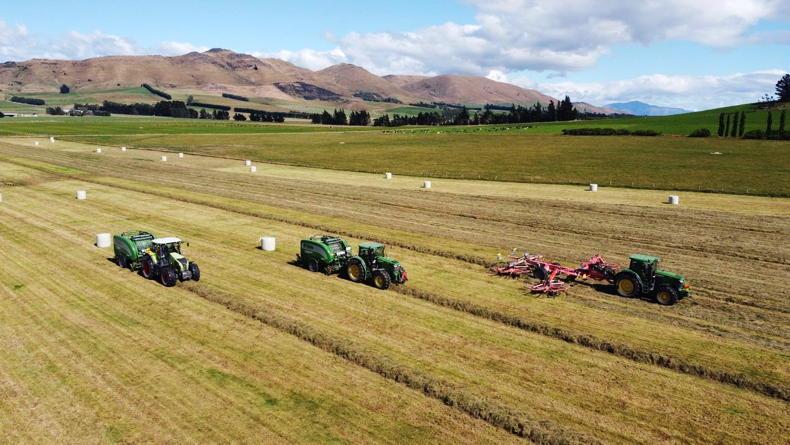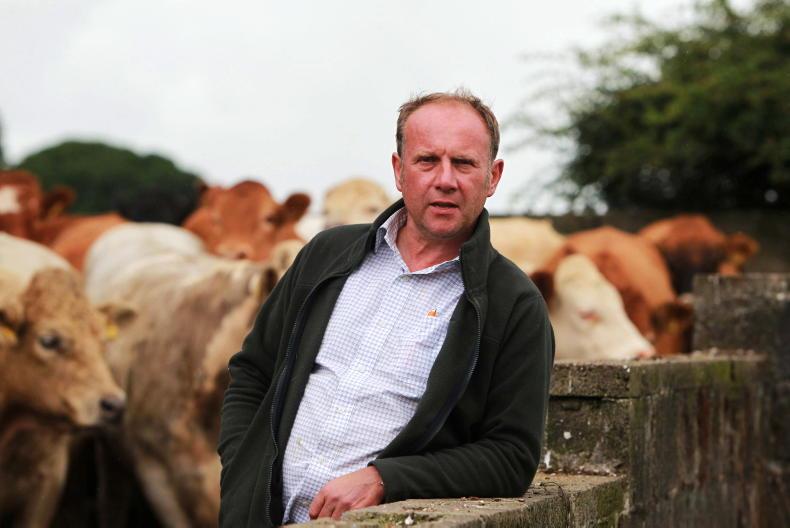Until recently, New Zealand was ranked as having the best health response to the COVID-19 pandemic of any country in the world (it has just been surpassed by Singapore).
A combination of our geographical remoteness, full border closure to non-citizens and residents and a series of short, hard lockdowns have enabled our government to deliver on an elimination strategy. This has allowed life to return to a high level of normality compared to the rest of the world.
We are working from the office, travelling freely around the country, enjoying sports events and concerts and able to dine out without any significant restrictions.
But normal is not normal and as we watch vaccination levels rise around the world with no clear timetable for our arms to be jabbed there is a growing concern among our food and fibre sector that we have played and won the wrong game.
The game we have played is one everybody started playing early in 2020, a finite game you win by vanquishing the virus.
Result
The result of this game has given the community within our bubble a combination of comfort and complacency (so much so the incumbent Labour government won an unprecedented electoral majority in October 2020). It is a game premised on a belief that global norms will come back and will be what they were before.
The challenge is that New Zealand is a nation that grows and sells food to the world and the industry is getting strong signals that “normal” in our markets is very different to “normal” a year ago. We sense that the rest of world stopped playing our game months ago and recognised that COVID-19 is in fact an infinite game, one where the rules constantly change, the playing field shifts and the participants evolve.
The first challenge any exporter raises relates to supply chain and the significant problems they are facing in getting product to a customer
It is not a game about winning but one about adapting quickly to new realities so that you can remain a strong and sustainable player in the game in whatever the now normal reality is that the world serves up to you.
So what are the now normal realities that organisations around the world need to be thinking about as they seek to maintain and build international customer relationships in the world as it is today, not how it was a year ago or how our intuition tells us normal should be?
The first challenge any exporter raises relates to supply chain and the significant problems they are facing in getting product to a customer, regardless of where they are in the world.
In 2019, most exporters had around 80% confidence that their products would be delivered on schedule despite the global supply chain for food and fibre products being stretched.
You could be relatively certain that a container would be moved from A to B for the cost agreed and would generally arrive on time.
That is not the case anymore. I have heard many executives talk about the day-to-day fragility of their supply chains in recent months.
Costs are higher, access to containers highly restricted and cool storage capacity is maxing out regularly.
On-schedule deliveries now sit at around 35%, clearly illustrating the challenges exporters are facing.
Assuming higher freight rates are here to stay and become part of the now normal, I expect exporters to be challenging their business models and supply chains to assess if they are fit for purpose in this new world.
Intellectual property
Consequently, the importance of intellectual property (be that genetics, growing systems or algorithms) and brands will increase exponentially.
It is not impossible to envisage a situation where a traditional food exporter transforms into a licensor of an IP-based production system and generates their return from the efforts of farmers and growers around the world.
The role of China in the global food system will usually be raised in the same breath as supply chain challenges. It is impossible to overstate the influence that the Chinese market has on global demand and pricing, even if you sell nothing to China.
African swine fever in the Chinese pig herd has driven global protein markets as China sought imports to replace domestic production. Government support for milk as a core element of a healthy diet has underpinned dairy markets.
On the other hand, companies have had markets closed to them because of political tensions between governments.
In recent months, New Zealand exporters have watched on as Australian wine, grain and red meat companies have seen Chinese markets evaporate as the governments of the two countries faced off over the source of the pandemic. This highlighted the narrow path that must be negotiated between traditional political allies (particularly the US) and important economic relationships, particularly China.
Structural inequality
Another now normal reality that organisations are coming to terms with relates to the growing awareness and acknowledgement of the level of structural inequality in society.
This has been brought into sharp focus in the last year by the food inequity that the pandemic has highlighted but also by the focus placed globally on the Black Lives Matter movement.

It is also more widely acknowledged that addressing these issues is not the sole responsibility of governments. Organisations are either part of the solution to these structural problems or they are inherently part of the problem.
This requires a different lens to be applied to trading relationships, particularly with many suggesting that globalisation of the food system has contributed to inequitable food access.
The need to invest in trade relationships and demonstrate that trade delivers positive benefits to all, has become a priority for our export sector.
The Trade for All Agenda implemented by the NZ government is focused on promoting the benefits of a rules-based trade system to all and is backed by initiatives that deploy our agri-food knowledge and expertise to support marginalised communities within our trading partners to produce their own food.
The exponential lift in the utilisation of digital technologies in the last year has been well documented. It has dragged the agri-food sector, one of the last bastions of the analogue era, into the digital age years earlier than it would have achieved under its own steam.
The need to invest in trade relationships and demonstrate that trade delivers positive benefits to all
For exporters, this means that consumers now expect a product to carry a digital footprint to support its provenance and provide full traceability.
It creates a wealth of new opportunities to utilise data to tailor product solutions and supply channels to better meet the needs and expectations of consumers.
Climate
While it dropped off the front pages over the last year, the response to climate change remains the era defining issue that the global community faces.
While New Zealand has already enshrined a zero-carbon goal into legislation, work is ongoing on how the food and fibre sector will play its part.
Our legislation recognises that not all greenhouse gases behave in the same way in the long term and therefore adopts a different approach to methane, a much shorter-lived gas which is inherent to pastoral animal agriculture.
Our exporters have spent the last decade or more responding to “food miles” claims which have been constructed based on perception rather than scientific analysis.
Fear is growing that a product’s carbon footprint could soon become another mechanism used to facilitate non-tariff barriers (and even carbon import duties).
There is consequently a recognition that while legislation may allow time for an economically practical transition there is a significant chance that market access may need faster action and product innovation to retain a ticket to play.
The challenges we face cannot be effectively managed from within our South Pacific bubble. As a result, the biggest unknown we currently face is what the runway looks like to reintegrate into the world. When will we be vaccinated, when will our borders reopen and when can we travel freely to engage face to face with customers and partners around the world? Our success in eliminating Covid-19 and winning our finite game will be worth nothing if we do not adapt quickly and become a player in the infinite game that is already the everyday reality for the rest of the world.
New Zealand isolated despite COVID-19 victory.Challenge in striking a balance with China.Climate change remains era-defining issue.
Until recently, New Zealand was ranked as having the best health response to the COVID-19 pandemic of any country in the world (it has just been surpassed by Singapore).
A combination of our geographical remoteness, full border closure to non-citizens and residents and a series of short, hard lockdowns have enabled our government to deliver on an elimination strategy. This has allowed life to return to a high level of normality compared to the rest of the world.
We are working from the office, travelling freely around the country, enjoying sports events and concerts and able to dine out without any significant restrictions.
But normal is not normal and as we watch vaccination levels rise around the world with no clear timetable for our arms to be jabbed there is a growing concern among our food and fibre sector that we have played and won the wrong game.
The game we have played is one everybody started playing early in 2020, a finite game you win by vanquishing the virus.
Result
The result of this game has given the community within our bubble a combination of comfort and complacency (so much so the incumbent Labour government won an unprecedented electoral majority in October 2020). It is a game premised on a belief that global norms will come back and will be what they were before.
The challenge is that New Zealand is a nation that grows and sells food to the world and the industry is getting strong signals that “normal” in our markets is very different to “normal” a year ago. We sense that the rest of world stopped playing our game months ago and recognised that COVID-19 is in fact an infinite game, one where the rules constantly change, the playing field shifts and the participants evolve.
The first challenge any exporter raises relates to supply chain and the significant problems they are facing in getting product to a customer
It is not a game about winning but one about adapting quickly to new realities so that you can remain a strong and sustainable player in the game in whatever the now normal reality is that the world serves up to you.
So what are the now normal realities that organisations around the world need to be thinking about as they seek to maintain and build international customer relationships in the world as it is today, not how it was a year ago or how our intuition tells us normal should be?
The first challenge any exporter raises relates to supply chain and the significant problems they are facing in getting product to a customer, regardless of where they are in the world.
In 2019, most exporters had around 80% confidence that their products would be delivered on schedule despite the global supply chain for food and fibre products being stretched.
You could be relatively certain that a container would be moved from A to B for the cost agreed and would generally arrive on time.
That is not the case anymore. I have heard many executives talk about the day-to-day fragility of their supply chains in recent months.
Costs are higher, access to containers highly restricted and cool storage capacity is maxing out regularly.
On-schedule deliveries now sit at around 35%, clearly illustrating the challenges exporters are facing.
Assuming higher freight rates are here to stay and become part of the now normal, I expect exporters to be challenging their business models and supply chains to assess if they are fit for purpose in this new world.
Intellectual property
Consequently, the importance of intellectual property (be that genetics, growing systems or algorithms) and brands will increase exponentially.
It is not impossible to envisage a situation where a traditional food exporter transforms into a licensor of an IP-based production system and generates their return from the efforts of farmers and growers around the world.
The role of China in the global food system will usually be raised in the same breath as supply chain challenges. It is impossible to overstate the influence that the Chinese market has on global demand and pricing, even if you sell nothing to China.
African swine fever in the Chinese pig herd has driven global protein markets as China sought imports to replace domestic production. Government support for milk as a core element of a healthy diet has underpinned dairy markets.
On the other hand, companies have had markets closed to them because of political tensions between governments.
In recent months, New Zealand exporters have watched on as Australian wine, grain and red meat companies have seen Chinese markets evaporate as the governments of the two countries faced off over the source of the pandemic. This highlighted the narrow path that must be negotiated between traditional political allies (particularly the US) and important economic relationships, particularly China.
Structural inequality
Another now normal reality that organisations are coming to terms with relates to the growing awareness and acknowledgement of the level of structural inequality in society.
This has been brought into sharp focus in the last year by the food inequity that the pandemic has highlighted but also by the focus placed globally on the Black Lives Matter movement.

It is also more widely acknowledged that addressing these issues is not the sole responsibility of governments. Organisations are either part of the solution to these structural problems or they are inherently part of the problem.
This requires a different lens to be applied to trading relationships, particularly with many suggesting that globalisation of the food system has contributed to inequitable food access.
The need to invest in trade relationships and demonstrate that trade delivers positive benefits to all, has become a priority for our export sector.
The Trade for All Agenda implemented by the NZ government is focused on promoting the benefits of a rules-based trade system to all and is backed by initiatives that deploy our agri-food knowledge and expertise to support marginalised communities within our trading partners to produce their own food.
The exponential lift in the utilisation of digital technologies in the last year has been well documented. It has dragged the agri-food sector, one of the last bastions of the analogue era, into the digital age years earlier than it would have achieved under its own steam.
The need to invest in trade relationships and demonstrate that trade delivers positive benefits to all
For exporters, this means that consumers now expect a product to carry a digital footprint to support its provenance and provide full traceability.
It creates a wealth of new opportunities to utilise data to tailor product solutions and supply channels to better meet the needs and expectations of consumers.
Climate
While it dropped off the front pages over the last year, the response to climate change remains the era defining issue that the global community faces.
While New Zealand has already enshrined a zero-carbon goal into legislation, work is ongoing on how the food and fibre sector will play its part.
Our legislation recognises that not all greenhouse gases behave in the same way in the long term and therefore adopts a different approach to methane, a much shorter-lived gas which is inherent to pastoral animal agriculture.
Our exporters have spent the last decade or more responding to “food miles” claims which have been constructed based on perception rather than scientific analysis.
Fear is growing that a product’s carbon footprint could soon become another mechanism used to facilitate non-tariff barriers (and even carbon import duties).
There is consequently a recognition that while legislation may allow time for an economically practical transition there is a significant chance that market access may need faster action and product innovation to retain a ticket to play.
The challenges we face cannot be effectively managed from within our South Pacific bubble. As a result, the biggest unknown we currently face is what the runway looks like to reintegrate into the world. When will we be vaccinated, when will our borders reopen and when can we travel freely to engage face to face with customers and partners around the world? Our success in eliminating Covid-19 and winning our finite game will be worth nothing if we do not adapt quickly and become a player in the infinite game that is already the everyday reality for the rest of the world.
New Zealand isolated despite COVID-19 victory.Challenge in striking a balance with China.Climate change remains era-defining issue. 









SHARING OPTIONS